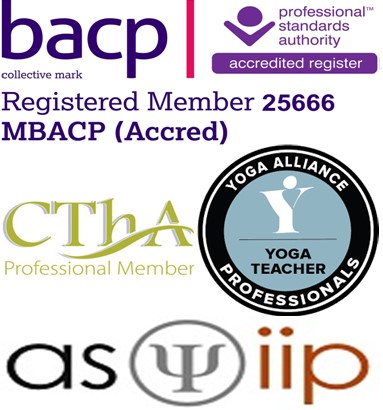About
Hello, I'm Sharon welcome to my web page, I follow a deeply integrative approach, I offer a unique blend of psychotherapy, yoga therapy, and spiritual guidance to support individuals on their journey toward healing and wholeness. Rooted in both modern psychotherapeutic models and timeless contemplative practices, my work is centred on the belief that true well-being arises from a harmonious connection between mind, body, and spirit.
Drawing from evidence-based therapeutic modalities alongside the wisdom of yoga and mindfulness, I create a compassionate space for clients to explore their inner landscapes. Whether you're navigating anxiety, trauma, life transitions, or a desire for deeper self-understanding, I support you through a holistic lens that honours your unique path.
My practice embraces the full spectrum of human experience: emotional, physical, mental, and spiritual helping you reconnect with your inner wisdom, cultivate resilience, and live with greater authenticity and purpose.
You can visit my LinkedIn, Yoga Alliance Professionals, Counselling Directory and BACP profiles to learn more about me and how I work.
Individual Counselling
My passion for counselling adults and young people with a range of presenting issues comes from the personal challenges and life experiences I have faced in an age where counselling services and support was not as available as it is now.
My hope is to offer early intervention support to clients so they can start therapy sessions, without lengthy waiting times.
I have consulting rooms in Shotts and Glasgow.
Family Counselling
Families spending time with a counsellor can explore issues and better understand children's intentions and individual behaviour and the ways this can influence wider family dynamics.
There are many ways challenges and differences between adults and children within your family can show up including: confusion, conflict and misbehaviour.
Time in family therapy can be a safe place to identify and explore the meaning of these differences and begin the process of working together to find an appropriate solution.
I can offer family counselling appointments in Glasgow.
Supervision
I work with supervisees from voluntary and statutory organisations as well those in private practice to support and expand their edge of awareness as a professional counsellor or practitioner.
I encourage and support reflection and development around; legal issues, safeguarding, theoretical knowledge, ethical dilemmas and development of self awareness.
I offer clinical supervision in Glasgow and Shotts to practitioners from a range of modalities.
Therapeutic Yoga
Is a one to one trauma informed and embodied approach that integrates counselling and specific yoga practices to regulate the autonomic nervous system. This is especially useful when working with a range of physical and mental health issues
Working therapeutically 1:1 involves a consultation to understand your health and lifestyle needs, and helps inform which yoga practices would best support you. All sessions are respectful of your your body and it's existing range of movement and are adapted to help rehabilitate any injury.
In my practice the most common presentations are:
Anxiety
When practiced regularly, the individual combination of grounding, breath practices, yoga postures and relaxation balance and regulate the heightened "fight/flight" response of nervous system to be more able to access the parasympathetic nervous system or "rest and digest". These practices help to reduce the physical and mental and emotional symptoms of anxiety: poor sleep, shaking, restlessness, muscle tension, nausea, digestive problems, sweating, shortness of breath, palpitations, panic attacks, tiredness, negative thought cycles, excessive worry, poor focus and concentration, forgetfulness and irritability.
Depression
Clients experiencing depression can live with an everchanging range of emotional, physical and mental states that can have a significant impact on daily living. Depression can be characterised by persistent: low mood or sadness, low self-esteem, feeling hopeless and helpless, anxious or worried, guilt ridden, tearful and feeling irritable and intolerant toward others. Some common examples of physical symptoms include: disturbed sleep, lack of energy, changes in appetite and weight, unexplained aches and pains and low sex drive. Mental function can be impaired to varying degrees making it more difficult for clients to: make decisions, enjoy life and show motivation or interest and some clients can experience thoughts of self-harm or suicide. Research has indicated that clients experiencing depression show higher levels of the stress hormone cortisol and lower levels of key neurotransmitters, working regularly with specific yoga practices will begin to regulate the nervous system and alleviate the unwanted symptoms.
Trauma
Trauma symptoms can be complex, clients often report a range of physical, mental and emotional experiences. These can include disturbed sleep, nightmares or insomnia, flashbacks, repetitive distressing images and physical sensations including trembling, aches and pains,sweating and nausea, these can also contribute to difficulty concentrating and irritability and anger outbursts. These can occur immediately after a traumatic event or can be triggered at a later time. Working therapeutically with with individual yoga practices and counselling interventions equips clients with the tools to balance and regulate the movement between sympathetic and parasympathetic responses helps to build “vagal tone”, this means the clients nervous system has the capacity to develop more resilience and tolerance to internal and external stressors.
If you recognise individually or a combination of any of the above therapeutic yoga will equip you with the skills to address and self regulate the stress response in bodily systems and physiology and move from "fight/flight" (sympathetic NS) to "rest and digest" (parasympathetic NS).Home practice between sessions is an essential part of the process of restoring homeostasis in the body and effecting lasting change.
November Self Care: Discover Different Styles of Meditation & Their Benefits
Meditation is not one-size-fits-all. Whether you seek peace, clarity, healing, or focus, there’s a meditation style that can support your intention. Explore some of the most popular types of meditation and learn how each one can enhance your mind, body, and spirit.
Mindfulness Meditation
Focus: Present Moment Awareness
Origin: Buddhist Tradition
What it is:
Mindfulness meditation encourages you to observe your thoughts, emotions, and sensations without judgment. Practitioners often focus on the breath, bodily sensations, or passing thoughts to cultivate present moment awareness.
Benefits:
- Reduces stress and anxiety
- Improves attention and concentration
- Enhances emotional regulation
- Boosts mental clarity
Transcendental Meditation
Focus: Mantra Repetition
Origin: Vedic Tradition (India)
What it is:
This practice uses a specific, silently repeated mantra to transcend ordinary thought and access a deep state of restful awareness. Usually practiced for 20 minutes, twice a day.
Benefits:
- Promotes deep relaxation
- Lowers blood pressure
- Enhances creativity and problem-solving
- Improves overall well-being
Loving Kindness Meditation (Metta)
Focus: Compassion and Kindness
Origin: Buddhist Tradition
What it is:
Also known as Metta meditation, this practice involves sending goodwill, kindness, and warmth toward yourself and others through specific phrases or visualizations.
Benefits:
- Increases empathy and compassion
- Reduces anger and resentment
- Enhances social connection
- Supports emotional healing
Body Scan Meditation
Focus: Physical Sensation Awareness
Origin: Mindfulness-Based Stress Reduction (MBSR)
What it is:
In this technique, attention is slowly guided through different parts of the body, noticing any tension, discomfort, or sensation, often while lying down.
Benefits:
- Eases physical tension
- Improves sleep quality
- Heightens body awareness
- Reduces chronic pain
Zen Meditation (Zazen)
Focus: Sitting & Breath Awareness
Origin: Zen Buddhism (Japan/China)
What it is:
Practiced seated with a straight spine, Zen meditation emphasizes breath awareness and observing thoughts without attachment. It's often done in silence, with eyes partially open.
Benefits:
- Sharpens focus
- Cultivates discipline and patience
- Encourages spiritual insight
- Balances emotions
Guided Meditation
Focus: Audio/Verbal Guidance
Origin: Modern/Adaptable
What it is:
Led by a teacher or recorded voice, guided meditations walk you through imagery, affirmations, or scenarios to achieve relaxation, healing, or personal insight.
Benefits:
- Ideal for beginners
- Supports specific goals (e.g. sleep, confidence)
- Encourages visualization skills
- Helps reduce overwhelm
Chakra Meditation
Focus: Energy Centers in the Body
Origin: Yogic Tradition (India)
What it is:
Chakra meditation focuses on the body's seven energy centers. Practitioners use breath, visualization, and mantras to balance and align the chakras.
Benefits:
- Supports energetic balance
- Enhances emotional and spiritual health
- Aids in self-healing
- Deepens self-awareness
Walking Meditation
Focus: Movement and Breath
Origin: Zen and Theravada Buddhism
What it is:
A form of moving meditation that involves walking slowly and mindfully, paying attention to each step and breath. Often practiced outdoors or in a quiet space.
Benefits:
- Increases mindfulness in daily life
- Improves balance and coordination
- Relieves mental fatigue
- Combines physical activity with relaxation
Find the Style That Fits You
Whether you're looking to reduce stress, sharpen your focus, or connect more deeply with yourself, meditation has something to offer. Try different styles to discover what resonates with your lifestyle and goals.




